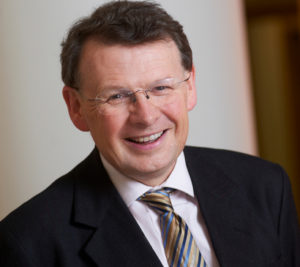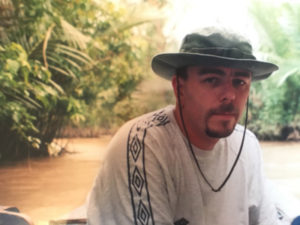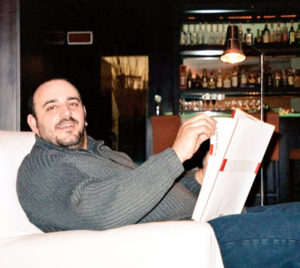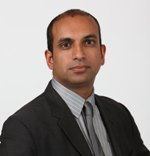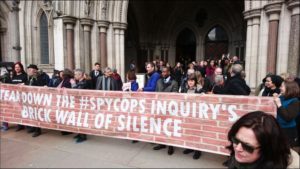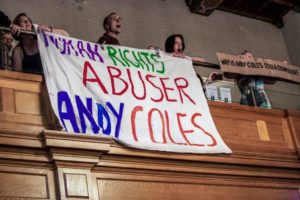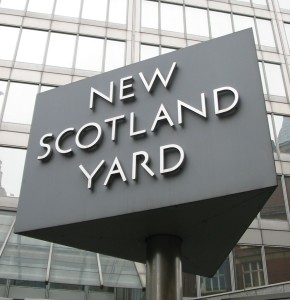 Tranche 1, Phase 1, Day 6
Tranche 1, Phase 1, Day 6
9 November 2020
Evidence from:
Phillippa Kaufmann QC (Women deceived into relationships by spycops, represented by Birnberg Peirce, Hickman & Rose and Hodge Jones & Allen)
Heather Williams QC (People in relationships with spycops, represented by Bindmans)
Heather Williams QC (Relatives of deceased people whose identity was stolen by spycops)
Phillippa Kaufmann QC (Women deceived into relationships by spycops, and justice campaigns, instructed by Harriet Wistrich [excluding Newham Monitoring Project])
Helen Steel, who was in numerous spied-on groups and deceived into a relationship by an undercover officer, was also due to speak, but her opening statement is to be rescheduled.
The penultimate day of opening statements mainly heard the harrowing stories of women who were deceived into long-term intimate relationships by undercover police officers. There were also contributions of behalf of people whose children have died and whose identity was, or may have been, stolen by spycops.
Prior to the first speaker, Mitting had a meeting with Dave Smith and two of the lawyers representing women deceived by undercover police officer ‘Carlo Neri’ (real Name Carlo Soracchi). This was due to an objection made to the Inquiry regarding the use of Soracchi’s surname, which prevented Dave Smith giving his open statement on Friday afternoon.
The Inquiry’s Chair, Sir John Mitting, decided that even though the name Carlo Soracchi has been in the public domain for a long time, he will ban anyone from saying it at the Inquiry until further notice.
Phillippa Kaufmann QC
(Women deceived into relationships by spycops, represented by Birnberg Peirce, Hickman & Rose and Hodge Jones & Allen)

Phillippa Kaufmann QC
Phillippa Kaufmann QC started proceedings, speaking on behalf of 21 different women who were deceived by spycops. Her written statement gives details of each woman’s story, but there are too many to include in detail in the oral statement.
This fact alone underlines the importance of what she says, and the fact that this abuse of women was absolutely systemic. Her oral statement focused mainly on the common issues and themes that the written statement addresses.
She began by saying that we now know of more than 30 women who were deceived in this way – some of them are represented by other lawyers in this Inquiry – with the earliest case that we know of dating back to 1975 (‘Mary’ and ‘Rick Gibson‘).
It is likely that there are still other women out there who have yet to discover that their personal lives were infiltrated in this way. The extensive anonymity given to former spycops by this Inquiry means that these women will continue to be denied the truth. In turn, this will also hamper the inquiry from reaching the truth.
Most of the women who were deceived were involved to some degree in political or campaigning activity – which is protected by law – challenging oppression and injustice, and seeking a better, more sustainable world. However, some of the women were not themselves political, they just happened to be useful to officers giving them ‘cover’ to gain entry to, or maintain ties with, political groups.
To the extent that there was any ‘legitimate policing interest’ at all in the groups with which the women were involved, it is out of all proportion to the devastation inflicted by the infiltration of their bodies, emotional lives, families and homes.
THE MOST COMPLETE INVASION OF PRIVACY
These relationships amounted to the most serious violations of the women’s human rights, including their rights to privacy, to freedom of expression and association, and most significantly, their right not to be subject to inhuman or degrading treatment. It is the most complete invasion of privacy that it is possible for the state to enact.
Kaufmann made it very clear: there was – and could be – no lawful excuse for such seriously abusive relationships. It is frankly insulting to suggest otherwise.
Talk then turned to the ‘institutional sexism’ that drove this practice – itself a reflection of deeply sexist attitudes that pervaded the police in general, and the spycops units in particular. The women were treated as objects, as props to shore up the officers’ fake identities, without any concern for the impact on their lives.
Kaufmann’s statement had profound power as it detailed so many women who have been so deeply, personally and cynically abused by undercover police officers. It is impossible for this report to summarise effectively, and we urge you to read the opening pages of the full written statement.
AN OVERVIEW OF SOME OF THE WOMEN’S STORIES
This began with ‘Lizzie‘ who met Mike Chitty and began a relationship in 1985 He disappeared suddenly, ‘to Florida’, then reappeared and tried to restart the relationship. It appears that he had finished his deployment and, without his managers’ knowledge, was returning to the people he’d spied on for social reasons.
Belinda Harvey had a two-year relationship with ‘Bob Robinson’ – spycop Bob Lambert – starting in May 1987. During this time, he confided in her and she tried to persuade him not to take part in the burning down of a Debenham’s shop in 1987. Lambert had her flat raided by Special Branch on the pretext of looking for ‘Robinson’.
Helen Steel was deceived into a relationship by undercover officer John Dines in 1990. She’s previously described it, saying:
“In a short space of time I fell absolutely madly in love with him in a way I had never fallen in love with anyone before or since. He said he wanted us to have kids”.
Helen spent years looking for John Dines after he vanished from her life.
‘Denise’ had a relationship with ‘Matt Rayner‘ between 1991-94. Although the officer has admitted it, the Inquiry Chair, Sir John Mitting, has reneged on the promise to tell all the deceived women the real names of the officers who abused them.
‘Bea’ had a relationship with ‘Bobby Lewis’ in 1992-93. She did not find out until 2019 that he had been one of the spycops.
‘Jessica‘ was just 19 when she was groomed into a year-long relationship by Andy Coles. He was her first serious partner. She thought he was a 24 year old single activist, but he was a 32 year old married police oficer with children. Coles is now a Conservative Party councillor in Peterborough.
‘Alison‘ was involved in anti-fascist and trade union politics when she met Mark Cassidy. They lived together for five years and he completely integrated himself into her life and family.
‘Monica‘ and ‘Ruth‘ were both involved in Reclaim the Streets when they were deceived into relationships by ‘Jim Sutton’, aka Jim Boyling.
‘James Straven‘ deceived three women into relationships: Wendy, Sara and Ellie. He has lied to this Inquiry not once but twice about his contact with Ellie.
Kaufmann also represents five of the women who were deceived into relationships by ‘Mark Stone’ – who we now know to be Mark Kennedy. This includes Kate Wilson, ‘Lisa‘ (who had a committed six-year relationship with him and uncovered his true identity in 2010), ‘Naomi‘, ‘Jane‘, and ‘C’. By the time ‘C’ got involved with Kennedy, he had already started working for a private security firm, Global Open.
‘Maya’ met ‘Rob Harrison‘ and began a relationship in May 2006 in which he was manipulative and controlling. He disappeared from her life but then reappeared much later in 2015, long after the spycops scandal was common knowledge and the public inquiry had been called, seemingly just to have sex with her once more before disappearing forever.
Many of their stories are also available in more detail at Police Spies Out of Lives.
ROSA
To illustrate the lengths and depths the undercover officers went to deceive and use the women, and the profound life-changing affects it has had on those women, Kaufmann went into some detail about ‘Rosa’ and her relationship with SDS officer Jim Boyling, who used the name ‘Jim Sutton’, as well as Rosa’s extraordinary investigatory efforts to get to the truth the State was denying her.
Rosa was deceived into a relationship by Boyling, who she met as a fellow activist in the urban environmental group Reclaim the Streets and became deeply involved with him in 1999. He disappeared suddenly from her life in the summer of 2000, after behaving erratically and sometimes abusively. He had appeared to be in a fragile mental state and told her that he was going to go off travelling alone, to Turkey, to find himself.
Boyling phoned Rosa and sent her a postcard. She was so worried about his safety that she contacted the Foreign Office. Rosa turned detective and tracked down some phone numbers Jim had called, but the men who answered seemed alarmed by her seeking Jim. She searched for years, but could not find any trace of the history of ‘Jim Sutton’. He continued to manipulate her by asking that she continue writing to him – in retrospect, Rosa thinks so he and his handlers could track her.
ROSA’S INVESTIGATIONS
She used all her savings trying to identify him. She went to South Africa, searching where he said he’d gone. But the digital fingerprints of his emails suggested he was actually in London, so she returned. She worked out his real name, Jim Boyling, and found his school records. Her weight dropped and her health suffered. Just as Rosa was getting close to the truth, Jim was sent back into her life as suddenly as he had vanished. Her relief after all her searching was overwhelming. He now told Rosa that he was an undercover officer, but also told her that he now hated the police and needed her help to escape them. Within two weeks of their reunion, she was pregnant.
She was already suffering serious psychological trauma, which he exploited. He convinced her to change her name by deed poll, oversaw the destruction of her address book, and pressured her to sever ties with her activist friends. Despite his promises, he continued working for the police, alongside Bob Lambert at the Muslim Contact Unit.
THREATS FROM THE MET
Boyling told Rosa that her old activist community was riddled with spycops. He told her about Helen Steel’s being spied on by multiple officers, including Steel’s partner John Dines. Boyling said that any attempt to tell people about it would be spotted before she managed to do anything. He told her she couldn’t be sure which of her old friends were who they said they were.
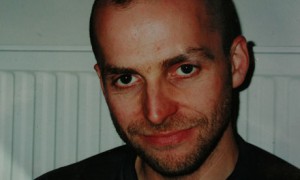
Jim Boyling whilst undercover in the 1990s
Rosa wanted to work out a way of getting a message to Helen Steel. Boyling’s behaviour had become worse, more erratic, more abusive, but Rosa felt trapped – she now had two children and Women’s Aid said that, as she was fleeing a police officer, they could not guarantee that their ‘safe house’ would offer enough protection.
Things only got worse after Boyling arranged for them to marry at a registry office. The children were both diagnosed with degenerative health conditions. As she watched her children lose their ability to communicate, she was angry that their brightest years had been stolen by the paranoia, fear and abuse that Boyling had inflicted.
Suddenly Rosa received a ‘welfare visit’ from two of Boyling’s police colleagues. One of them was Boyling’s manager Bob Lambert, the other was an unpleasant character called ‘Noel’. He had previously told her to call him if she needed any support. Now he told her that any attempt to reveal the truth would fail because she was up against the full might of Special Branch. She realised his previous offer of help had actually been manipulating her into giving him early warning of any intention on her part to leave.
ESCAPE TO THE TRUTH
Rosa finally felt able to flee in 2007. She got a letter passed to Helen Steel in 2010 and was finally able to meet up with activists later that year. Boyling remained a police officer until 2018, when he was eventually sacked by a disciplinary tribunal because of his relationship with Rosa.
The tribunal itself highlighted some of the lies and inconsistencies told by Boyling, to his managers as well as Rosa. He claimed in his defence that she was ‘an apolitical waitress’ when they met, while in reports made while undercover he described her as a ‘political organiser’.
Rosa wonders to what extent will this Inquiry be able to understand the abuses committed by these spycops units?
THE IMPORTANCE OF ACTIVISTS TO THE INQUIRY
Kaufmann went on to highlight just how important activists, and in particular the women who had the relationships, were in bringing the spycops scandal into the public domain. She highlighted how both opening statements last week statements by Counsel for the Inquiry and Peter Francis had severely underplayed their role.
For instance, Mark Kennedy’s cover was blown by ‘Lisa‘. She thought she was in a relationship with ‘Mark Stone’, but then she found a passport in his real name, and emails from children calling him ‘dad’. Having heard from other protestors about the doubts and suspicions around their comrades ‘Jim Sutton’, ‘Lynn Watson‘ and ‘Rod Richardson‘, Lisa gathered a small team of friends to do more research to uncover who he really was.
Some research had already been done by Rosa and Helen Steel, both of whom had figured out the truth about their relationships with spycops.
Helen spent long years trying to find Dines, and even travelled to New Zealand as part of her search. She worked out that he must have been a police officer, but people told her she was paranoid, ‘that such a thing would never happen in this country’.
These women used their persistence and skill, and their own resources. They uncovered information that brought them to the truth. That included ‘Rosa’ and Helen and ‘Lisa’, but also Belinda and ‘Alison’. In 2011, they and three other women began legal proceedings.
PATTERN OF ABUSE
The women clearly see that the catalogue of similarities in their cases proves that this wasn’t the work of individual officers lacking adequate supervision. The women are the ones who did the investigations, who are the most familiar with the details, and so are best placed to spot the patterns. This is why this Inquiry must allow them to participate meaningfully in the process and get to the truth.
Kate Wilson has brought a case in the Investigatory Powers Tribunal (IPT), the court that deals with surveillance infringing on human rights. She has had to do this alone, as women abused before the Human Rights Act 1998 cannot bring a case, nor can the seven women to whom the Met apologised in 2015, as the settlement bans them from further legal action on the issue.
Wilson’s IPT case shows how important the activist perspective is to get to the truth.
She pointed out that:
‘I have no criminal convictions, even for minor offences, and the only reason that these officers entered my life at all was because I was expressing my political views and exercising my right to protest.’
She has only received a fraction of the 10,000 pages the Met admit having on her, and even then it’s been heavily redacted. Yet still, she says:
‘even that tiny and over-redacted sample has answered more of my burning questions than seven years of police defence statements and admissions… it was not simply a lack of supervision, there was active collusion by management in the relationship and direct manipulation of my political activity.’
These were social and environmental campaigners, not terrorists. However, even if these women had been terrorists there is no justification in law for the practice of forming relationships. It inherently sexist, degrading, and cannot be justified.
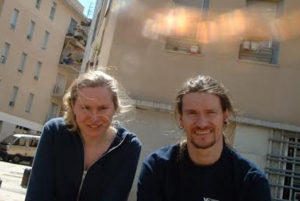
Kate Wilson and Mark Kennedy
These women fell in love with men who were seemingly perfect. The exit strategies used by spycops officers were cruel, caused huge amounts of worry and fear, and all of these women have been left dealing with massive trauma.
‘Lisa’ said that Mark Kennedy was placed into my life to deceive me by an employer who would inevitably one day pull him out. Finding this out has broken my heart, devastated my life and shattered my trust in people.’
The women all describe the deep pain caused by these officers, many years later. They talk about losing their trust, their sense of self, their sadness and grief, their anger, the debilitating effects, how this news has affected them, and the impossibility of finding closure.
When the state has put an imposter in your life that is hugely destabilising. Almost all of the women no longer feel able to participate in the campaigns and movements that were once such an important part of their lives.
These abuses have had an impact on their ability to form and maintain relationships ever since, and an impact on their families and friends, and especially on their children.
REFLECTIONS OF MANIPULATION
The spycops used a range of techniques to deceive and manipulate these women, including ‘mirroring’, a form of emotional manipulation where the deceiver pretends to have the same interests and experiences to initiate a coercive and abusive relationship.
Andy Coles told some of ‘Jessica’s’ friends that he had been adopted (like her); Mark Kennedy claimed to have grown up in Battersea (like Kate) when seeking a relationship with her, yetwhen courting ‘C’ he told her that when he was growing up he had spent time at the same local park in Norwich thatshe had gone to as a child. There are also indications that spycops shared knowledge about individuals with one another in order to facilitate mirroring.
Almost universally, the undercover officers told life stories of loss and bereavement, playing on the women’s emotions.
METROPOLITAN POLICE – DODGING ACCOUNTABILITY
Kaufmann also revealed the utter hypocrisy of the Met’s repeated claims that they’re keen to cooperate with this Inquiry (and connected court cases). In reality, they have deployed every obstructive and delaying tactic at their disposal. This has, as they are surely aware, prolonged and compounded the damage to the women they have abused.
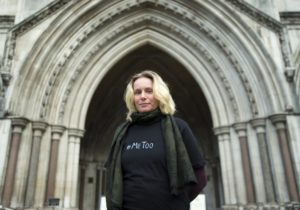
Kate Wilson outside the Royal Courts of Justice, 3 October 2018
In 2011, Kate Wilson, ‘Lisa’ and ‘Naomi’ brought a claim and the Met agreed to give disclosure of documents. They said it was a problem of ‘rogue officers’, who had not been authorised to do what they did.
Then in June 2012, the Met rescinded their promise of documents and tried to have the claim struck out. They said that the officers were authorised after all, as a way of taking the case out of open courts and putting it into the jurisdiction of the secret courts of the IPT.
In the same month, the Met replied to five more women saying that they’d just remembered they have an absolute policy of ‘Neither Confirm Nor Deny’ on anything to do with undercover work.
The Met then applied to strike out both cases on the grounds that ‘Neither Confirm Nor Deny’ (NCND) was an inviolable principle. Helen Steel, one of the five, performed a forensic dissection of that assertion, showing it to be a blatant lie, made to protect abusers and avoid accountability.
WHEN IS A SPYCOP NOT A SPYCOP?
It was pointed out that many officers had given media interviews confirming themselves to be spycops, and the Met Commissioner himself had confirmed Jim Boyling was a Met officer. The Met backed itself into the absurd position of admitting Boyling was one of their officers, but refusing to confirm he was an undercover officer, as if he might be a uniformed bobby who did all that activism under a false identity as some kind of hobby.
In 2014, the Met put forward their defence, that the relationships were the result of ‘mutual attraction and genuine personal feelings’ with no deceit involved, They said such relationships were neither unlawful nor even an abuse of power. And they still refused to admit John Dines and Mark Jenner were spycops.
The Met didn’t formally admit Mark Kennedy was a spycop until May 2015, more than four years after his press agent got him a front page feature in the Mail on Sunday.
Even the Met’s extraordinary apology to seven women in 2015 seems aimed to deny the plain fact they were routinely using relationships. Specifically, the apology said the relationships were not authorised in advance, nor would they ever be used as a tactic of a deployment; yet four years later, in the IPT, they were forced to disclose evidence and that led to far wider admissions.
The lawyers for some of the former undercover officers, Slater & Gordon, have continued to claim that such relationships may be justifiable, especially if they are ‘casual’. A fact which says more about those officers than they would want us to know. The Met continues to try to avoid going to court with the women, and to prevent any disclosure.
INVESTIGATORY POWERS TRIBUNAL
However, they have now admitted – in the IPT – that Kennedy’s cover officer knew about his relationship with Kate Wilson and acquiesced to it. From Kate Wilson’s IPT case, we know that to get to the truth, we need to force the police’s hand regarding disclosure. The women must be given personal police files, so they are able to unpick the stories they contain .
Kate has now received around 2000 heavily-redacted pages for her case – estimated to be about 20% of the material the IPT has on her – and she has already spotted many inaccuracies, examples of mismanagement, and police prejudices in the material. Everyone who comes into contact with the groups being spied on is almost automatically considered fair game for this kind of intrusion – in a submission to the IPT earlier this year, Kate said:
[the police] ‘appear to have adopted a ‘thought crime’ approach to breaching people’s rights… repeatedly stating that anyone they considered to be a “like-minded individual” was a legitimate target’.
It has now been established that Kate’s Article 8 Rights (to a private and family life) were breached by the spycops – not just by her relationship with Kennedy but by the less intimate spying of at least six other officers who spied on and reported on her. The implication is that potentially thousands of other people’s human rights have been breached in the same way. Yet here she is, ten years into her legal battle, with no clear answers.
It all adds up to a picture of the police as an organisation that is desperate not to account, let alone to account publicly, for the terrible damage it has permitted its officers to do to the women. It cannot be right that this is the organisation that dictates what information gets released, how quickly, and to whom.
THE NEED FOR ANSWERS
The women’s need for answers is no less burning now than it was when they first suspected or learned the truth. They no longer believe the Inquiry is fit to do that, but they persevere here because they desperately need definitive answers (about what was done to them and why; who authorised, condoned, or acquiesced to it; who knew about it; what information was shared and recorded about them; and what will be done to stop it happening to others).
They need to know whether personal information about their most intimate lives is still on a file somewhere. They need to know that it will not happen again.
The lack of disclosure has served to compound the trauma suffered by the spycops victims. Kaufmann noted the self-pity of Boyling mentioned in last week’s submissions from the police, where he complained of the heavy burden of being investigated for sexual offences. She says he, and the others should consider themselves lucky that criminal law views rape through a patriarchal lens.
The women have waited for over five years for answers. The extent and scope of the anonymity orders granted to spycops means that the women are never likely to know the full extent of the intrusion into their lives, nor even how many spycops were involved in their lives.
At the heart of what happened to these women lies institutional sexism. This is a complex issue that requires an exploration not just of the mind-set of the men involved in the undercover units but also of the institutional culture that developed and operated, and how the two are inter-related.
IS MITTING FIT FOR PURPOSE?
The women of the campaign group Police Spies Out of Lives endorse the concerns expressed by others last week that the institutional racism and institutional sexism that led to these abuses must be explored by people with the expertise and skills to do so.
For this reason, the Chair should accept the assistance of a diverse panel. The point was forcefully made that the Chair’s limited and privileged life experience mean that he cannot possibly understand the evidence he is presented with and gain a thorough understanding of the truth.
The women have had to discuss deeply personal matters with lawyers over the years. They have had an incredibly stressful experience participating in these cases and in this Inquiry. Their concerns also stem from the Inquiry’s a lack of sensitivity in failing to recognise the urgency of the need for disclosure about the relationships; in the manner in which ‘Lizzie’ and ‘Sara’ were notified that men they had intimate relationships with were spycops; in the way it put pressure on the women who had relationships with Carlo Soracchi not to disclose his real name; and in the stark contrast between the care shown for the privacy and concerns of spycops compared with that afforded to their victims.
As stated, the women remain involved because they are impelled to know the truth and stop this happening again to other women. To make sure this never happens again, the women want the Inquiry to recommend that the law is changed to prohibit undercover officers from engaging in sexual relationships while in their undercover persona, and that the police be required to suspend an officer and inform anyone deceived into a relationship by an undercover officer as soon as they become aware of the relationship.
The accompanying written opening statement from Phillippa Kaufmann QC on behalf of women deceived into relationships by spycops, represented by Birnberg Peirce, Hickman & Rose and Hodge Jones & Allen
Heather Williams QC
(People in relationships with spycops, represented by Bindmans)

Heather Williams QC
Heather Williams QC, speaking for individuals in relationships with undercover officers who are represented by Bindmans.
Williams began by plainly stating that the people she represents have had their lives turned upside down as a result of spycops engaging in sexual and other intimate relationships, on a thoroughly deceptive and completely illegitimate basis.
There was never any operational justification for this grossly irresponsible and manipulative conduct, and the damage which it caused is profound. The officers created an illusion of genuine intimacy – via the projection of their fake identities – tricking, betraying and abandoning those who they used.
WHO WILLIAMS SPEAKS FOR
Williams first spoke about ‘Lindsey’, who was deceived into entering into a long-term sexual relationship with an officer the Inquiry refers to as HN104; he used the name ‘Carlo Neri‘, but his real name is Carlo Soracchi.
Soracchi was deployed by the Special Demonstration Squad (SDS), 2002-06. He infiltrated the Socialist Party/Militant and No Platform/ Antifa. He then developed a focus on trade union activity.
Secondly, Williams speaks for Sarah Hampton, who was deceived into entering into a long-term sexual relationship with ‘Mark Stone’ – actually Mark Kennedy of the National Public Order Intelligence Unit – in 2005/6.
Thirdly, three members of the Cardiff Anarchist Network (CAN) – Tom Fowler, and two women known as ‘AJA’ and ‘ARB’ – a group which was infiltrated between 2005-09 by officer EN12, using the name ‘Marco Jacobs‘. AJA and ARB were deceived into having sexual relationships with him. Tom Fowler was deceived into believing that he was his best friend.
Lastly, Williams speaks for a man known as ‘TBS’ whose position is, as yet, unique at the Inquiry. TBS’s mother, Jacqui, had a long-term sexual relationship with undercover SDS officer Bob Lambert, posing at the time as an animal rights activist under the cover name ‘Bob Robinson‘.
Born on 23 September 1985, TBS is Bob Lambert’s son, who he abandoned when he “disappeared” in late 1988.
ABUSIVE, DECEITFUL, MANIPULATIVE & WRONG
The unsuspecting activists would never have agreed to or countenanced these intimacies if they had know the true identities of these men. The spycops pretended to be committed and like-minded activists.
As the 2014 ‘Operation Herne’ police report concluded:
“there are and never have been any circumstances where it would be appropriate for such covertly deployed officers to engage in intimate sexual relationships with those they are employed to infiltrate and target. Such an activity can only be seen as an abject failure of the deployment, a gross abuse of their role and position as a police officer and an individual and organisational failing.”
In 2013, the Home Affairs Select Committee’s Interim Report on undercover policing said:
“…there are some lines that police officers must not cross… We do not believe that officers should enter into intimate, physical sexual relationships while using their false identities undercover without clear, prior authorisation, which should only be given in the most exceptional circumstances.
“In particular, it is unacceptable that a child should be brought into the world as a result of such a relationship and this must never be allowed to happen again. We recommend that future guidance on undercover operations should make this clear beyond doubt.”
It took until 2015 for the Met to accept that these sexual relationships were “abusive, deceitful, manipulative and wrong”, and a breach of the women’s human rights.
Like the first group of women to whom the apology was addressed, Sarah received a formal apology in January 2017. TBS received an apology from the police in April of this year.
In the Undercover Policing Inquiry’s opening statements last week, lawyers speaking for the police mostly accepted that these relationships were wrong but, in contrast, the officers represented by Slater & Gordon have continued to downplay, deny and dismiss their wrongdoing, in contradiction to the long- established position of the Metropolitan Police.
Those who have been victims of such fundamental deceit feel compelled to try to participate in this Inquiry. They are driven by a strong sense of responsibility to those whose lives have been intruded upon without justification and to the new generation of activists – protesting against climate change racial injustice – to ensure that they are not subjected to similar abuse.
The Inquiry must respect their commitment, and not shirk from its responsibility to hold police officers properly to account for the improper discharge of their public functions. It must not allow its task to be overwhelmed by practices ingrained within undercover policing, of protecting their own from legitimate exposure and attendant accountability.
This doesn’t just concern the Met – the Home Office, the National Crime Agency and the College of Policing – should all be called to account, and to answer the questions we raise.
‘LINDSEY’
‘Lindsey’ met Carlo Soracchi through mutual friends in the Socialist Party. The relationship was fun and sociable at first; Carlo said he worked as a locksmith (and used this as pretext for changing activists’ locks, in order to ‘improve their security’!). Carlo was the first to use the word ‘love’ in their relationship, and he made her believe that he was committed to her in the long-term.
She was shown the evidence that Carlo had been an undercover officer in October 2015. Since then, she has suffered sleeplessness, and feelings of anger and vulnerability. She has questioned her own judgment and suffered intense embarrassment. She has dwelt on other friendships and relationships, and doubted the motives and genuineness of people she knows.
SARAH HAMPTON
Sarah Hampton had a relationship with Kennedy. He acted romantically and attentively, and gave her the impression that this was a serious emotional relationship.
When she found out Kennedy’s true identity in 2010 she was shocked. She suffered huge stress, insomnia, flashbacks and severe depression. She suffered intense paranoia, she felt destabilised, and she felt guilty for introducing Mark to fellow activists and friends.
‘MARCO JACOBS’

Spycop Marco Jacobs
After an aborted deployment in Brighton, National Public Order Intelligence Unit (NPOIU) officer ‘Marco Jacobs’ moved to Cardiff in 2006, and integrated himself into a group of activists involved in Cardiff Anarchist Network.
Years later, the group worked out that he’d been a spy after Mark Kennedy was outed, and they noticed striking similarities in the extraction and other strategies used by the spycops.
Marco initiated a relationship with a younger activist, ‘AJA’. The relationship was built on a close friendship that had developed over the previous few years. Marco suggested that they take their relationship further, just two months before they travelled together to protest at the G8 summit in Germany, in the summer of 2007.
When she discovered the truth about his identity, AJA felt extremely betrayed and violated. She was physically sick. She remains plagued by intrusive recollections and a loss of self-worth in having been deceived by him.
INVADING FAMILIES
‘ARB’ (who also uses the pseudonym ‘Deborah’) first met Marco at a CAN meeting in 2005, when she was 26. She got the impression that he was attracted to her and she found him to be warm, funny, and attentive. They became close friends and would often meet for a drink after her work.
ARB was in a long term relationship with Tom Fowler when her father became terminally ill with cancer. Having woven himself into Fowler’s life as a best friend and confidante, Marco took the opportunity of ARB’s father’s illness to put make himself a great support, belittle Fowler, and sow discord.
Marco met ARB’s parents on a number of occasions, including her father when he was visiting Cardiff for cancer treatment. On another occasion he comforted ARB’s mother when she confided in him regarding the extent of her husband’s illness. He attended ARB’s father’s funeral.
Around the same time, in late 2006, Marco’s NPOIU colleague Mark Kennedy attended the funeral of Lisa’s father. Did the two spycops compare notes, evaluate the value and create a strategy for this?
Like many spycops, Marco gained sympathy and trust by claiming to have had a disturbed upbringing. When ARB’s father died, Marco told a detailed story about his mother dying when he was young and his own father dying more recently. She was made to feel guilty for not supporting him.
Marco then propositioned ARB for a sexual relationship. She turned him down but he persisted. Believing she was about to begin a serious relationship with the ‘truck driver’, she broke up with Fowler, only for Marco to suddenly lose interest.
It seems it was Marco’s remit to sow discord among the group, inevitably causing long term damage to friendships and the people who were in them.
Marco was exposed as a spycop in January 2011. It took more than four years of legal action before the Met even admitted Marco was an undercover officer (at a hearing presided over by Sir John Mitting, coincidentally).
TBS: SON OF A SPYCOP

Bob Lambert holds his new born son TBS, September 1985
‘Bob Robinson’ – SDS officer Bob Lambert – attended the birth of TBS in 1985, and lived with him and his mother, Jacqui, for the first few years of TBS’s life.
Lambert disappeared in late 1988. Having being involved in a group of animal rights activists, and apparently burning down Debenham’s in Harrow himself – he pretended to be an animal rights activist on the run from the police.
When Jacqui’s next partner wanted to formally adopt TBS, inquiries were made by the authorities. They said they’d found a former flatmate of Lambert’s and that, as a suspected criminal who’d fled the country, he wasn’t expected back. But who was the flatmate? Was this the police and security still lying to cover Lambert’s tracks – and so obviously knowing all about TBS’s existence – years after his deployment ended?
It was only by chance that Jacqui saw a news report about Lambert in 2012 and told TBS the truth she had just learned. She said what happened to her and the other women was:
“like being raped by the state. We feel that we were sexually abused because none of us gave consent”.
TBS is preoccupied with the fact that the Met were apparently prepared to let him go his whole life without learning the truth and having the opportunity to get to know his father. Jacqui said that she believes Lambert would have taken the secret with him to his grave.
TBS brought a claim for damages against the Met. As with the women deceived into relationships, the police did not seek to heal the harm they caused but instead tried to have the claim struck out. In a pattern familiar to so many who have suffered injustice at the hands of the state, he has suffered a second injustice of delays, denials and obstacles from the guilty institutions.
THE DAMAGE DONE
Those who were deceived into sexual and other intimate relationships have suffered intense psychological impacts, from which many will never recover. As well a pervading sense of violation and loss of dignity, they all have a paranoia and insecurity that has permeated every aspect of their private and personal lives.
They have suffered the anguish of being the unwitting conduit for these officers’ credibility among their friends and comrades.
All of these victims remember the way in which the spycops manipulated their emotions – they presented themselves as kind, attentive, helpful and full of empathy, the friend with endless patience for shared problems and confidences. They cynically ‘mirrored’ their victims’ interests, tastes and backgrounds. They went as far as making up stories of personal loss and grief to ‘mirror’ genuine tragedy suffered by the activists. This was all done with a total disregard for the well-being of those they targeted. The victims have suffered intense psychological harm, from which many will never recover.
Having quoted from the flippant, offensive advice given in the SDS’ 1995 Tradecraft Manual to have ‘fleeting, disastrous’ relationships, Williams pointed out that these relationships were anything but fleeting. They were constructed over time, painstakingly creating deep emotional commitment on the part of the victim, and often endured for a substantial part of a spycop’s deployment.
Mark Kennedy told the Home Affairs Select Committee in 2013 that his managers always knew his whereabouts (he even carried a tracking device), and that other spycops and informants would have been reporting back on him. Senior managers must have known what was going on and, at the very least acquiesced to it.
The similarity of the experiences from people across such a spread of time, distance and police units indicates the existence of a shared pool of knowledge, understanding, training or guidance that officers were all party to.
SO MANY QUESTIONS
Why did the spycops create these relationships?
Were they prompted by a twisted logic that they were necessary for maintaining cover? Were they a means of accessing and gathering “intelligence”? Were they for sexual gratification? Or a combination of all three?
How common was it for spycops to behave in this way?
To what extent were those who monitored and supervised these deployments aware of these relationships? What safeguards were in place?
Were officers either encouraged or discouraged from forming such relationships? If they were encouraged to do so, why was this?
What consideration, if any, was given to the collateral impact on family members and friends of the women?
Insofar as the spycops didn’t have to comply with the rules governing other areas of undercover policing, who made these decisions and what was the rationale?
How many children were fathered as a result of spycops’ deceitful sexual relationships with those that they spied on?
What, if any, guidance, training or instruction were they given about this possibility?
Was any consideration given to the impact upon a child who, as their father knew all along, would be abandoned as a toddler when the deployment ended? Were the interests of the child even considered?
If fathering a child was not an approved tactic, then what steps were taken against officers who did it? It doesn’t seem to have led to disciplinary action. On the contrary, after TBS was born, Bob Lambert was promoted. He went on to manage the SDS in the 1990s, overseeing the deployments of a number of the other abusive officers we’ve heard about today, including Jim Boyling, Andy Coles, and Mark Jenner.
When he left the police, Lambert was awarded an MBE for services to policing. He then held several academic posts, which he had to resign from after the truth about his career was made public in 2011.
PUBLIC SECRETS
The Inquiry’s first Chair, Lord Pitchford, said that women deceived into relationships by undercover officers deserved the fullest answers. His successor, Sir John Mitting, has failed to keep the spirit of that in the case of Carlo Soracchi. He has told the women the name and appealed to their ‘judgment and humanity’ not to upset Soracchi’s family by publicising it.
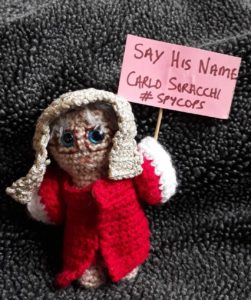 Despite Soracchi’s name being in the public domain for quite some time, Mitting is insisting that nobody can say it at the Inquiry, to the frustration and disappointment of Lindsey and others.
Despite Soracchi’s name being in the public domain for quite some time, Mitting is insisting that nobody can say it at the Inquiry, to the frustration and disappointment of Lindsey and others.
In the case of ‘Marco Jacobs’, Mitting has not even stuck to the letter of Lord Pitchford’s assurance. The officer has been granted anonymity by the Inquiry, and the women remain in the dark, despite the Met having admitted that these relationships happened and paid compensation.
Like fellow spycop Andy Coles, Jacobs knows his behaviour is unjustifiable, so he is flatly refusing to admit it despite the great swathes of proof.
The people represented by Heather Williams want a reliable official record of the chronology of events, and acknowledgment of the gross violation of their human rights and the impact that it had. It is one of the most serious breaches of human rights ever seen in this country. They don’t just want the state to learn meaningful lessons, but the implementation of tangible protections against future abuse.
Williams then added her clients’ voices to the chorus of affronted dismay that the Inquiry is still refusing to give public access to this public inquiry. It other inquiries can create a secure live stream, so can this one.
The accompanying written opening statement from Heather Williams QC of behalf of people in relationships with spycops, represented by Bindmans)
Heather Williams QC
(Relatives of deceased people whose identity was stolen by spycops)
One of the most difficult events to bear is the death of a child. Heather Williams’ clients were horrified to hear – years later – that the identity of their loved one had been stolen to provide a false identity for an undercover police officer.
With this strong observation, Heather Williams QC started her opening statement. She represents several people who have found out that the identity of a close member of their family had been used, and two who suspect they have been:
Frank Bennett and Honor Robson, are the bereaved brother and sister of Michael Hartley. He died on 4 August 1968 at 18 years of age, when he went overboard a fishing trawler. They found out in April 2018 that Michael’s identity had been stolen by HN12. The officer appropriated Michael’s identity between 1982 and 1985 when he infiltrated the Socialist Workers Party and the Revolutionary Communist Group. He is known to have committed crimes, and to have engaged in a sexual relationship.
Faith Mason is the bereaved mother of Neil Robin Martin. He died on 15 October 1969 at the age of six. His mother was only 22 at the time and brought up her remaining three children alone. The officer known as HN122 appropriated aspects of Neil’s identity and infiltrated Class War and the Revolutionary Communist Party between 1989 and 1993 as Neil Robin Richardson. She was informed by the Inquiry in January 2019.
She found the information impossible to absorb and at a subsequent meeting with the Inquiry team she found what she heard incapable to believe.. It felt like losing Neil all over again. She has lost sleep and is pre-occupied with distressing thoughts.
The Chair has granted anonymity to HN122 so his real name is not known. So far we only know he was deployed to spy on two un-named groups. According to his application for privacy, HN122 claims that releasing his real name would risk ‘interference in his public life’. Faith observes that the possibility that he is now prominent figure points in favour of openness and transparency, rather than against it.
Mr, Mrs and Ms Lewis, who are the father, mother and sister of Anthony Lewis. He died on 31 July 1968 at seven years of age. The officer whose cypher is HN78, used Anthony Lewis’s identity between 1991 and 1995 to infiltrate the Anti-Nazi League and the International Socialists/Socialist Workers Party. He was generally known as ‘Bobby’.
The Lewis family are appalled by what they have learnt so far. It has been revealed that HN78 had at least two sexual relationships and was involved in spying on the Lawrence family – as they were grieving and campaigning following the racist murder of their son.
The undercover officer who used Anthony’s identity was black, as are the Lewis family. The boy died of sickle cell anaemia; an illness that occurs predominantly in people of African and/or Caribbean descent; the family would later lose another child to it. The family wants to know how HN78 went about to find the identity of a black child: did he specifically for deaths attributable to sickle cell illness? Or did he rely on some other method to target black children?
Liisa Crossland and Mark Crossland are the stepmother and brother of Kevin John Crossland. He died on 1 September 1966 aged five in a plane crash. The officer known as HN16 used his name to infiltrate the Animal Liberation Front and the Brixton and Croydon Hunt Saboteurs between 1997 and 2002. The family only learnt details of this identity theft in June 2018.
The Crosslands now know of arrests for crimes committed during HN16’s undercover deployment, a misconduct investigation and a promotion (to Detective Sergeant). Also, of how he first refused to answer questions about sexual relationships, and subsequently lied to the Inquiry about having been involved with at least two women – “Ellie” and “Sara” – of whom we heard about this morning. Liisa and Mark are very upset by the Inquiry’s continued denial of their “moral right” to know the true identity of the officer who appropriated Kevin’s identity.
Not mentioned today, was the fact that HN16 had not one, but two covert identities. As an activist he was known as “James Straven” – a name that was invented for him by the SDS, while the one set up with the birth certificate seems not to have been used at all while he was undercover in animal rights groups.
Barbara Shaw is the bereaved mother of Rod Richardson. He died on 7 January 1973, when he was two days old.
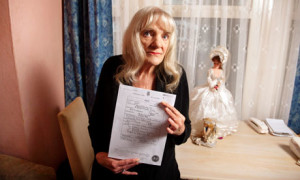
Barbara Shaw, holding the death certificate of her son Rod Richardson
The officer known as EN321 used Rod’s identity between 1999 and 2003, to infiltrate Class War and the Movement Against the Monarchy.
She was the first person to discover that her son’s identity had been used by the spycops units, after she was contacted by Rob Evans from The Guardian. In response to a police complaint, she received a heavily-redacted report that horrified her.
She was told by the police they would “Neither Confirm Nor Deny” as they needed to protect the tactic and the officer. Mrs Shaw complained to the Independent Police Complaint Commission but despite them upholding part of the complaint, she has yet to get any answers, let alone justice.
Gordon Peters is the father of Benjamin De Witt who died at a very young age of one week old, on 23 September 1979. He learnt about the undercover police practice of using dead children’s identities in 2014, and wrote to the Metropolitan Police to check if this had happened in his case. The police are yet to provide a meaningful answer.
“RDCA” is the mother of Jed Lacey Morris who died in April 1971, when he was one year old. She also wrote to the police, in 2013, asking for confirmation that her child’s identity hadn’t been used in this way. Her baby had been unlawfully killed by a driver in 1971. She was “surprised to learn that the MPS was unwilling to confirm the use of her son’s identity or alternatively to assuage her concerns” – it makes her feel “quite sick”.
There were differences between the children whose name was stolen – Michael Hartley was 18 years old when he died, Rod Richardson was just a few days old – but their relatives have very similar questions. They all want to better understand what was done by the officers using their identities
In 2013, the Commissioner issued an apology expressing regret for relying upon the identities of deceased children in general. No specific apologies to affected families families were forthcoming, again on the grounds that such communications would reveal the UCOs’ covert identities. (Though they have since been confirmed in multiple cases.)
Heather Williams QC stated that her clients feel the appropriate time for a formal apologies would be after the police have answered their questions. And they have many.
NOT USED AT FIRST, & NOT ALL THE TIME
The first question is: why would the police use this method? We do not believe there was any operational necessity for this disgusting practice. Williams explained that this practice was not used at first.
A memo from SDS supervisory officer, Detective Inspector HN294, dated 21 February 1973 stated:
‘one of the main… advantages…of a field officer assuming a fictitious name, using a cover address and employment and radically altering his appearance is that – unlike an informant – he can resume his proper identity and appearance at any time and immediately be “lost” to the extremists.’
In a July 2013 report, the Metropolitan Police’s Operation Herne identified 42 SDS officers who had relied upon the identity details of a deceased child, but also 45 spycops who had developed entirely fictitious covert identities.
Efforts to phase out the practice on grounds of operational ineffectiveness from 1995, but it was never the only thing available. Operation Herne identified an early instance where an officer had used an aunt’s surname instead.
Strikingly, the practice continued long after it had been discredited and obvious viable alternatives developed: HN16 and EN32 were deployed using the stolen identities of Kevin Crossland and Rod Richardson in as late as 1997 and 1999 respectively.
HOW SPYCOPS CREATED IDENTITIES
This practice concerned the collecting and storing of extensive personal details relating not only to the identity of the deceased children, their dates and places of birth, the dates and causes of their deaths, but also to the names, occupations and addresses of their parents and other family members.
The officers would have tried to gain familiarity with the child’s family, their home and sometimes even visited the area to get acquainted to it. Some of the bereaved detest the idea that they have been spied on themselves.
According to whistle-blower spycop Peter Francis, it was common practice to ‘weave one’s own memories with that of the child’. He acknowledged that in doing so, he ‘felt that he was stamping on their memory’. He also told Operation Herne that he had ‘no choice, either he used the identity or he would have had to leave the unit.’
The flippant and demeaning language used in the SDS’ Tradecraft Manual reveal a striking lack of insight and sensitivity.
– The officer’s task was characterised as one of “finding a suitable ex person, usually a deceased child…”
– Officers were advised to find a death that was “natural or otherwise unspectacular”.
– Checking whether the deceased child had living relatives was referred to as identifying their “respiratory status”.
– And the action of adopting a dead child’s identity was referred to as “assume squatters’ rights over the unfortunate’s identity”.
The text reveals an absence of any consideration for the relatives’ traumatic loss of a child or the potential consequences for them, senior officers have now admitted.
WILL WE LIVE LONG ENOUGH TO GET ANSWERS?
In July 2016, the families were told it would not take too long.
Four years later, in February this year, the Inquiry said that the investigations were still ongoing and that the Chair would provide an update as soon as he could. Asked for a clear timeline again on 15th September, the Chair responded that the review of cover names used by SDS officers was close to completion, but that they would then start on the ones used by the NPOIU.
Again, no clear timeline was provided.
This is completely unsatisfactory, Williams said. Our clients have been left waiting for a further unspecified period, with no certainty that they will ever receive a substantive answer from the Inquiry; and with the police playing a potentially decisive role in that determination.
Those of our clients who are elderly are concerned they may not live long enough to receive answers.
Heather Williams then set out a lengthy and detailed list of questions which they felt the police and Inquiry needed to answer first, if justice was to be done. Many of them focused on who knew about the tactic and how the practice was allowed to continue so long and across units. And what wrong doing was done in the name of their beloved ones.
THE FAMILIES WANT IT OUTLAWED
The secret use of identities of children who had died was done without any meaningful authorisation, without consideration of their rights or the possible consequences, without checks dan balances, and with an absolute absence of any (individual or institutional) accountability.
“We are incredulous that this was done without operational justification, and without any consideration for us.”
Heather Williams concluded: “Our clients seek a detailed public accounting for this abhorrent practice:
– including a formal record of how the practice was permitted to develop and continue;
– the full extent of the intrusion they suffered and the culture that surrounded it;
– together with a detailed historical record of the wrong that has been done to them and its impact.
They seek not only the learning of meaningful lessons, but also the implementation of tangible protections against future abuse, so that this can never again be permitted to become established policing practice.
The accompanying written opening statement from Phillippa Kaufmann QC on behalf of Women deceived into relationships by spycops, and justice campaigns, instructed by Harriet Wistrich [excluding Newham Monitoring Project]
Phillippa Kaufmann QC
(Women deceived into relationships by spycops, and justice campaigns, instructed by Harriet Wistrich [excluding Newham Monitoring Project])
Phillippa Kaufmann QC made her second opening statement of the day.
This time, she was appearing for John Burke-Monerville, Patricia Armani Da Silva and Marc Wadsworth, Core Participants who have been put into the Inquiry’s ‘Category J: Justice campaigns’.
Kaufmann opened by saying:
“All three were active in campaigns against police violence and racism and corruption. All three have reason to believe they or their campaigns were subject to undercover policing. But they have received no details of this. They are very concerned about the number of justice campaigns spied upon. They all want the Inquiry to confront the patterns that emerge from the repeated reporting on justice campaigns and the issues of institutional, structural and individual racism that underpin them. It is remarkable that the MPS [Metropolitan Police Service] made no mention of racism in their opening statement.
“Given the clear benefit to the police of having information with which to undermine groups campaigning against police violence, racism and corruption, the Inquiry is asked to scrutinise very carefully, with a penetrating sceptical gaze, the purported explanations of the police.”
The Inquiry is urged to examine the use to which any information gathered was or might have been put; and to assess the role that racism, both individual and institutional, played in the undercover policing of justice campaigns. Kaufmann then went on to speak about her individual clients.
JOHN BURKE-MONERVILLE
After a long, hard-working life, John Burke-Monerville should now be enjoying his retirement with his wife, children, grandchildren and indeed great-grandchildren. Instead, he finds himself in a public inquiry fighting to discover why he and his family were spied on by the Metropolitan Police.
John’s son, Trevor, disappeared in suspicious circumstances at the very beginning of 1987 and was found unconscious in a car. After that he was arrested, roughly treated at the police station and then remanded. On 4 January 1987, he suffered fits and, on 6 January 1987, he was transferred to hospital for emergency surgery to remove a blood clot from his brain. On the same day, the Crown Prosecution Service dropped all charges against him.
His family and friends set up a campaign to find out what had happened to him. Trevor never regained his memory, before being stabbed and killed in 1994. Family members (including Mr Burke-Monerville’s then-79 year old father and 73 year old mother) were persecuted and harassed by the police. John’s wife was arrested and charged, then subsequently acquitted. She successfully sued the police for malicious prosecution. Another of their sons, Joseph, was shot and killed in 2013 – a tragic case of mistaken identity. A third son, David, was fatally stabbed outside his home in North London.
In 2014, Trevor was approached by Operation Herne, the police’s self-investigation into spycops, and told that they’d found evidence that his family justice campaign had been spied on.
He now says:
“I feel a responsibility to my sons, myself, my family and my community to ensure that this Inquiry comes through with some sort of answers about why we were spied on by the police. We have not been told the truth by anybody in authority about anything all along… I have no reason to be hopeful about the Inquiry. No one in authority has given me that.”
Movingly, he adds:
“I do remain hopeful. It is, though, my last hope and I am tired. I don’t want my surviving children, grandchildren and great-grandchildren to go through what we are going through.”
PATRICIA ARMANI DA SILVA
Patricia Armani Da Silva is the first cousin of Jean Charles de Menezes, the Brazilian man who was shot and killed by police at Stockwell underground station on 22 July 2005, when he was mistaken for a suicide bomber. Patricia has been campaigning for justice ever since his death. His family have had to continually correct the false narrative that Jean Charles contributed in some way to his own death.
The police have sought to deflect, distract and mislead the public. We know that they have leaked false stories to the media ever since they shot him. Later, Harriet Wistrich, the de Menezes family solicitor, received a call from a police officer saying that the police had leaked an allegation of rape against Jean-Paul – which was later to be proved false.
To this day, Patricia cannot prove that the police was the source of all of the false information (e.g. that Jean Charles was an illegal immigrant), but Peter Francis reported that undercover police were routinely tasked with finding info with which to discredit family campaigns like hers.
In 2014, her family was shown five intelligence reports by Operation Herne. These included information about individuals’ political beliefs. She was told that she could submit a request to the Metropolitan Police for details, but this was subsequently refused. Patricia has not, to date, been provided with any further information as to how or why the campaign for justice for Jean Charles de Menezes was the subject of undercover policing.
MARC WADSWORTH
Marc Wadsworth is a journalist, historian and campaigner. In 1991, he founded and led the Anti-Racist Alliance – Europe’s largest black-led anti-racism movement – that comprised faith groups, civil organisations, MPs from all the main parties, and trade unions. He had branches throughout the UK. It was seen by the police as a thorn in their side.
In 1993, Marc assisted the family of Stephen Lawrence to set up their campaign for justice and introduced them to the lawyer Imran Khan QC. He also facilitated a meeting between the Lawrence family and Nelson Mandela. He has made FOIA and SAR requests to the Metropolitan Police for the data held on him. So far, all he has received are one redacted document and one report.
Once again, the police have refused to either confirm or deny whether the ARA or its members were subjected to surveillance. All three of these Core Participants have an overwhelming need to know the truth: not just about how, why and by whom they were spied upon; but about the deeper systemic truths about the SDS.
They want to know the truth about Peter Francis’ allegations of the targeting of justice campaigns; and they want the racism inherent in the view of justice campaigns as trouble-makers to be recognised and addressed. The issue of racism as a motivation for some aspects of the SDS’ reporting and deployments must be at the heart of the Inquiry’s investigation, including in respect of the ‘direct penetration’ or ‘close monitoring’ of the Justice for Trevor Monerville Campaign.
WHY DID THEY DO IT?
Kaufmann questioned whether the spying was motivated by a desire to derail and discredit the campaigns, as they attempted to bring racist police brutality and harassment to light (as John Burke-Monerville fears)?
Or was it, as the police maintain, a case of so-called ‘collateral intrusion’, a by-product of the targeting of ‘extreme’ left-wing groups, who the SDS suspected of using the family justice campaigns (such as the Justice for Trevor Campaign) for their own ends?
She said:
“It will be impossible for the Inquiry to assess where the truth lies in respect of these competing motivations, without considering the underlying circumstances. The family have always suspected from the fragments they have been able to piece together, that Trevor was restrained and assaulted during his time in police custody- suggesting that the police has a motive for keeping tabs on the campaign’s search for the truth.”
The third Operation Herne report, from March 2014, identified 17 Black justice campaigns that were reported on. They are listed in SDS records covering the years between 1970 and 2005.
Peter Francis has described how the SDS infiltrated Black justice campaigns and effectively thwarted their activities:
“My presence in the groups made that justice harder to obtain… once the SDS gets into an organisation, it is effectively finished.”
According to Francis, his superiors wanted him to collect ‘dirt’ about the Stephen Lawrence’s family, to undermine public sympathy for them.
He said:
“Had I found out anything detrimental – and newsworthy – about the Lawrence family, the police, using the media then, would have used that information to smear the family. My superiors were after any intelligence of that order.”
The absence of written records makes it hard to get to the truth. Mark Ellison QC carried out a review, and in his report said: “In light of the limited records available, little weight can be attached to the absence of a record.” We know that many instructions were delivered to undercover police verbally, rather than put in writing.
Given the context, an absence of evidence is not the same as evidence of absence. The Inquiry has largely excluded non-state core participants from meaningful participation: by restricting cover names; by compartmentalising non-state CPs into narrow categories of ‘direct interest’, determined by the Inquiry; and by holding, at least, the initial hearings in circumstances where only a tiny number of non-state CPs and members of the public will be able to see and hear the evidence.
INSTITUTIONAL RACISM
Another huge issue for these clients has been the Inquiry’s ability to explore and assess the issue of institutional racism. There can be few people nowadays, including in the field of dispensing justice, who have not heard of the term ‘unconscious bias’. Many different types of biases have been identified, but some are of particular importance concerning the issues, of racial and sexual inequality and political policing, which arise in this Inquiry. ‘Ingroup bias’ (meaning that we tend to unfairly favour someone from our own group) is informed by the wider social and cultural forces at work.
At a meeting with Burke-Monerville in December 2018, the Chair’s response to these concerns of conscious or unconscious bias illustrated precisely his lack of awareness of how his background and life experiences shape the way he sees the world.
Mitting claims that he will take the “approach of a historian”. But Marc Wadsworth, himself a historian, has grave concerns about this view of historical analysis as an objective process, not shaped by the culture and society in which the historian was raised.
Kaufmann accused the Chair:
“You have displayed a lack of understanding of these issues and refused to recognise your own biases. Despite a lack of knowledge of Burke-Monerville’s case, you made a huge assumption by saying you broadly accepted the police’s own narrative of ‘collateral intrusion’.”
Burke Monerville commented:
“It is painful for me to read about my own children being killed. I read that you don’t need a panel to help you understand racism properly. You do not know much about racism…I’ve read some of the comments that you made about racism. I think you need additional people to look at the evidence with you and to help you make decisions especially relating to racism….I would like to know why you think you can do this without help when you have no experience of racism and no discrimination training.”
Mitting’s response at that meeting provided yet another illustration of his deep lack of understanding – he likened the family’s losses to deaths in wartime.
“Whilst well-meaning, the Chair’s analogy with wartime loss misses such a critical aspect of Mr Burke-Monerville’s loss – that it did not occur in conditions of war, but on the streets of London, where he and his family ought to be able to expect a reasonable level of protection and police investigations capable of identifying suspects and bringing them to trial; but he does not have that, because of the colour of his skin”
“For all of these reasons, Mr Burke-Monerville, Ms Armani Da Silva and Mr Wadsworth wish formally to record that they hold out little hope for this Inquiry’s ability to get to the truth.”
Mitting made yet another patronising and insensitive comment, saying that of all the CPs, Burke-Monerville has the “largest cross to bear”, and ended today’s hearing.
The accompanying written opening statement from Heather Williams QC on behalf of relatives of deceased people whose identity was stolen by spycops
COPS will be live-tweeting all the Inquiry hearings, and producing daily reports like this one for the blog. They will be indexed on our UCPI Public Inquiry page.
<<Previous UCPI Daily Report (6 Nov 2020)<<
>>Next UCPI Daily Report (10 Nov 2020)>>
 ‘Jessica’ was a vulnerable 19 year old animal rights activist when she was groomed into a sexual relationship by undercover police officer Andy Coles.
‘Jessica’ was a vulnerable 19 year old animal rights activist when she was groomed into a sexual relationship by undercover police officer Andy Coles.
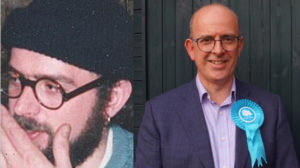
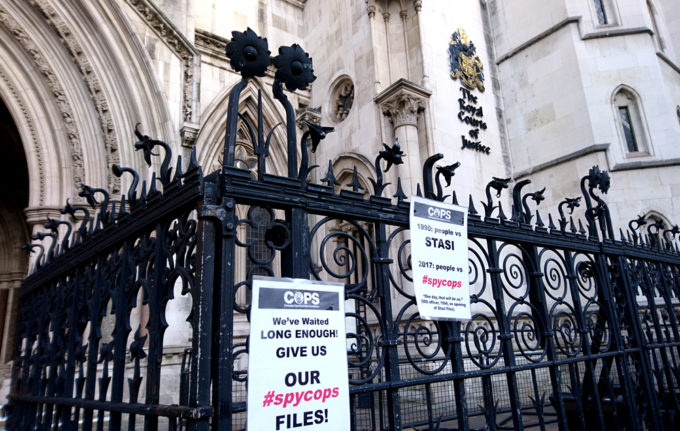 Today, the
Today, the  Tranche 1, Phase 1, Day 6
Tranche 1, Phase 1, Day 6






 Despite Soracchi’s name being in the public domain for quite some time, Mitting is insisting that nobody can say it at the Inquiry, to the frustration and disappointment of Lindsey and others.
Despite Soracchi’s name being in the public domain for quite some time, Mitting is insisting that nobody can say it at the Inquiry, to the frustration and disappointment of Lindsey and others.
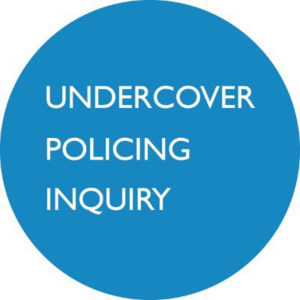 Tranche 1, Phase 1, Day 3
Tranche 1, Phase 1, Day 3


